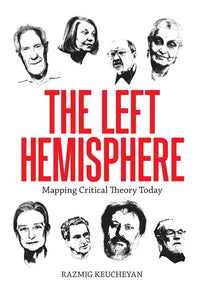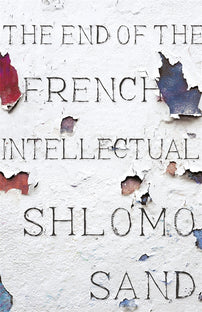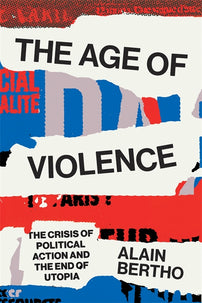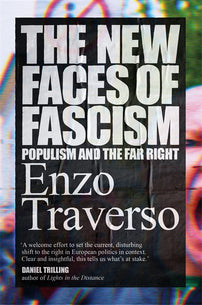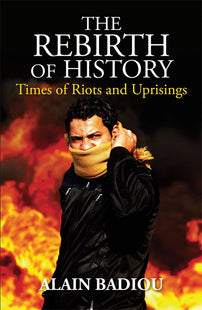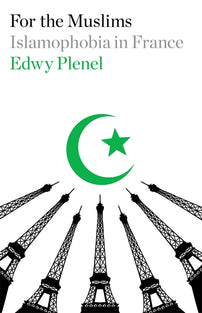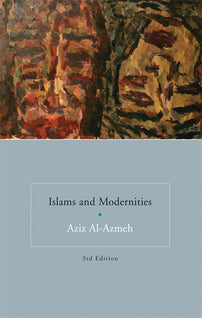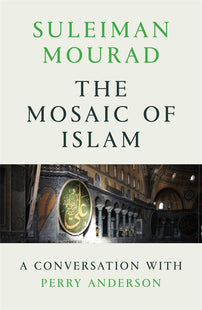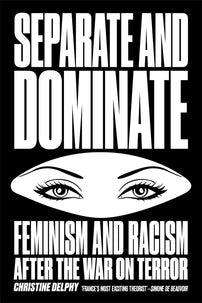Wars and Terrorism: End the Denial
This open letter, signed among others by Virginie Despentes, Adèle Haenel, Annie Ernaux, Jean-François Bayart and Alexis Jenni, deplores the fact that the link between Western military interventions and terrorist attacks is never questioned.
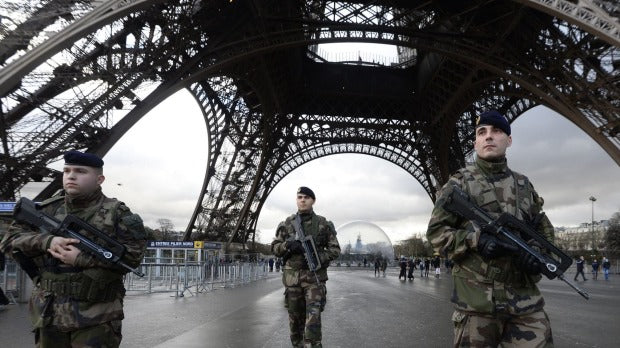
Some arguments made in the land of free expression are quite unwelcome. This principle is brandished aloft by the very people who at the same time stigmatise, insult, intimidate and threaten anyone who tries to shed a different light on the terrible situation we are going through.
This situation, which has seen a succession of abject murders carried out to terrify us, is indeed terrifying. But beyond the horror, nothing more is allowed to be said. In the eyes of these detractors, the attacks committed by fanatical terrorists deserve no other explanation than the tautology that they are committed by fanatical terrorists. Anyone who offers elements of analysis and understanding is immediately doomed to vilification from commentators on social networks and in certain newspapers, who feed on such attacks to fill their racist stock-in-trade and trumpet calls for war and a clash of civilisations.
Debate in a democratic way
This is what happened recently to Judith Bernard. Playwright and founder of the interview site Hors-Série, Bernard is a regular guest on the Arte programme ‘28 minutes’ which discusses current events. When she appeared on 30 October, the programme’s presenter Renaud Dély asked the question: ‘Why is France once again targeted by terrorist attacks?’
Without reducing the various attacks that had occurred to a single factor, Bernard replied by mentioning the wars fought by France in the Muslim world; she recalled that Daesh was born in the social chaos generated by the war waged by the Western powers in Iraq. She said that these wars were counter-productive: by destroying the structures and institutions of the countries attacked and by claiming countless victims, they had planted the seeds of terrorism.
Bernard was immediately slandered, threatened, accused of complicity in crime and apology for terrorism. But at the risk of suffering the same fate, we agree with her. And we want this crucial issue to be debated in a democratic, well-founded, reasoned and argued manner. We want people who are concerned about good faith and intellectual honesty to pay attention to it.
What our wars produce
The wars waged by our country are either ignored or glorified. Successive heads of state who decide on them without any democratic validation like to present themselves as warlords. Without democratic validation, since the institutions of the Fifth Republic make this a sovereign prerogative. Parliament, which already has little power, has only to keep silent. Silence is the essence of the response to these wars.
It is therefore necessary to draw on the work of researchers in international politics and NGOs to get a better hold on these situations, from which democracy and the right to information are excluded. Among many others, we can cite the work of Arun Kundnani, Robert Pape, James K. Feldman, Alex Braithwaite, Marie Cold-Ravnkilde, Katja Jacobsen, Vron Ware, Marielle Debos, Mathias Delori and Christophe Wasinski. In addition, a network of researchers called OCTAV (Observatoire contemporain du terrorisme, de l’antiterrorisme et des violences) has worked for three years on the relational and mimetic nature of ‘terrorist’ and ‘anti-terrorist’ violence.
All of these show not only the obvious violence inherent in these military operations, but also their absolute ineffectiveness in terms of the purposes they officially proclaim in presenting themselves as ‘anti-terrorist wars’. Many of these analyses argue that the phenomenon is one of the ‘pyromaniac fire-fighter’: far from fighting terrorism, it feeds it by fuelling resentment.
Indecent approximation
What about the civilian victims of the strikes, bombings and wars carried out by our country, alone or in international coalitions? They are rarely anything more than numbers. They are abstract, invisible, ignored deaths. Sixteen hundred civilians in the city of Raqqa alone between 2017 and 2019, four to six thousand civilians in Mosul. In July 2016, a few days of incessant bombardment of Manbij killed more than four hundred civilians, including a hundred children.
‘A hundred’ – the approximation already strikes us as indecent. We would like to give a face and a name to these women, men and children. But they remain too far away from us, even though the state in which we live is responsible for their deaths. Some people suggest the notion of ‘terrorism from the air’, if we accept that the word ‘terrorism’ refers to violence against defenceless civilians. In any case, international observers, including Amnesty International, have been very firm and clear in referring to war crimes and violations of humanitarian law.
The euphemisms of the powerful, on the other hand, only mention ‘collateral damage’ in their statements and press releases. ‘Blunders’, we sometimes read in the newspapers, such as when Le Figaro covered the Manbij bombing disaster in a mere six lines. To see these images and look them in the face you have to search elsewhere: to see what Coalition planes are doing, see the hands of dead children protruding from the rubble, see the scale of the horror.
When the Coalition dropped thousands of bombs on the Syrian city of Hanjib, Colonel François-Régis Legrier, who was involved in Afghanistan and then Iraq, declared: ‘We have massively destroyed the infrastructure and given the population a hateful image of Western-style liberation, leaving behind the seeds of a new adversary’s resurgence in the near future. We have by no means won the war.’
Multiple causes
Beyond that, there has not been enough awareness here of the deadly consequences in Iraq of the wars and the embargo in which France played its part. Hundreds of thousands have died there, the majority of them children. With the greatest indifference – or with the cynical justification of Madeleine Albright: ‘We know, but it was worth it.’
Certainly, not all terrorist attacks can be explained by this bellicose military interference. Each situation has its singularity and has also multiple reasons in the biographical, social and psychological trajectory of the individual perpetrators. Of course, jihadist terrorism has its own agenda, strategies determined by precise contexts, a history nourished by the complex causalities specific to each of the countries where it takes root and each of the countries where it strikes; no explanation is mechanical and no univocal or reductive interpretation should be accepted. But it is essential never to refrain from examining these causalities, in all their components, since it is certain that we can only fight against a phenomenon by analysing precisely everything that has made it possible and promoted its development. It cannot be repeated often enough that explaining does not mean justifying, and that the exercise of lucidity and reason has absolutely nothing in common with an inclination to legitimise.
[book-strip index="1" style="display"]Making visible what France is doing
In the present case, it is important for us to stress the need to inform ourselves and make visible what France and the French army are doing. In our name. To become aware of the terror imposed on these populations bombarded by the Coalitions, justified by doctrines called ‘Shock and Awe’ and the like. To demand that the state be held accountable and provide basic information about what it is ordering. To fully support those who, like Judith Bernard, defend these positions and call for such words to no longer be criminalised as they so undeservedly are. For we fear that, as in the past, the conduct of these foreign wars may lead to a reduction of freedoms at home.
There is no single, monolithic response to the human disaster of terrorist attacks. If freedom of expression has any meaning, it should be to guarantee at least the possibility of debating it in dignified and enlightened conditions. But we are convinced that fewer wars and more justice will certainly lead to less terrorism.
Initial signatories
Alain Badiou (philosopher), Ludivine Bantigny (historian), Jean-François Bayart (politician), Mehdi Belhaj-Kacem (philosopher and writer), Miguel Benasayag (philosopher and psychoanalyst), Omar Benderra (economist), Didier Bigo (sociologist), François Burgat (political scientist, Islamologist), Cécile Canut (linguist), Manuel Cervera-Marzal (politician), Yves Citton (philosopher), Alain Damasio (writer), Laurence De Cock (historian), Christine Delphy (sociologist), Virginie Despentes (writer), Emmanuel Dockès (jurist), Elsa Dorlin (philosopher), Francis Dupuis-Déri (politician), Annie Ernaux (writer), Jules Falquet (sociologist, feminist), Pascale Fautrier (essayist), Bernard Friot (economist), Bruno Gaccio (artist), Patrice Garesio (teacher, co-president of the Survie association), Isabelle Garo (philosopher), François Gèze (publisher), Barbara Glowczewski (anthropologist, director of research CNRS/Collège de France), Adèle Haenel (actress), Éric Hazan (publisher), Alexis Jenni (writer), Anasse Kazib (railway worker, activist Sud Rail), Razmig Keucheyan (sociologist), Michel Kokoreff (sociologist), Stathis Kouvelakis (philosopher), L’1consolable (rapper), Mathilde Larrère (historian), Yvan Le Bolloc’h (artist), Hervé Le Corre (novelist), Jean-Yves Lesage (print worker, CGT), Frédéric Lordon (economist and philosopher), Bernard Lubat (artist, musician), Sandra Lucbert (writer), Christian Mahieux (retired railway worker, trade unionist Solidaires), Gilles Martinet (geographer), Xavier Mathieu (actor, former CGT Conti spokesman), Gérard Mordillat (writer), Olivier Neveux (academic), Albert Ogien (sociologist), Ugo Palheta (sociologist), Serge Quadruppani (translator, writer), Floréal Romero (farmer and activist), Adeline Rosenstein (playwright), Elias Sanbar (writer), Todd Shepard (historian), Nikos Smyrnaïos (academic), Alessandro Stella (historian), Pacôme Thiellement (writer), Enzo Traverso (historian), Albin Wagener (linguist).
All signatories can be found here: https://tribuneantiterrorisme.wordpress.com/
[book-strip index="2" style="display"]Translated by David Fernbach
